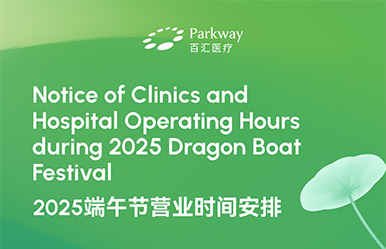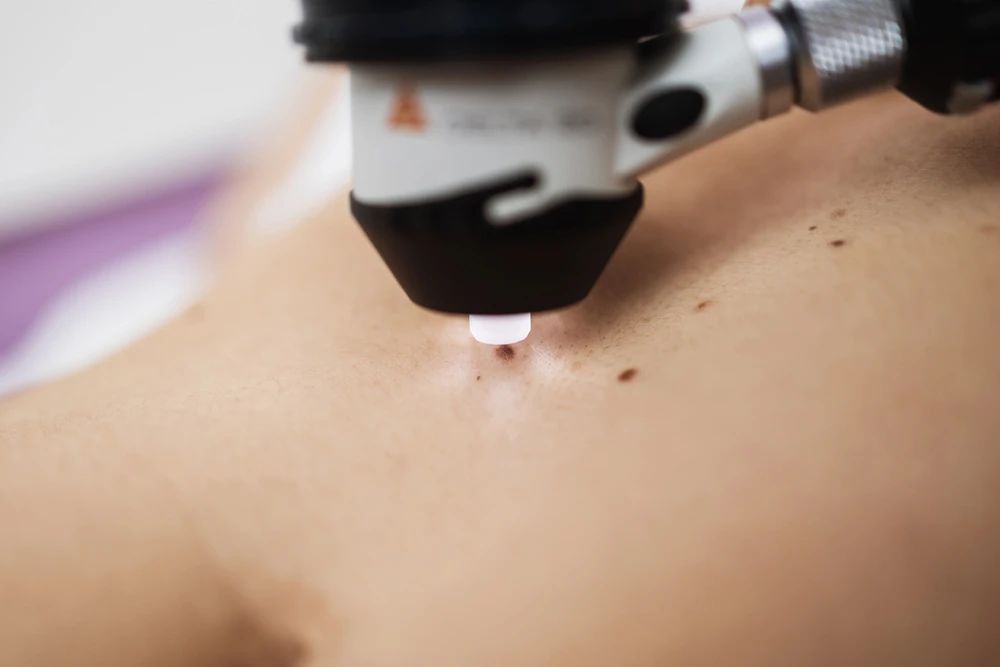Keep Your Health in Check after 40
2020-11-04

No matter how busy you are or how healthy you feel, going for routine check-ups should be part of your healthcare regime.
Many diseases often have no symptoms in their early stages, and it may be too late for treatment by the time you suspect something is wrong. The disease may have progressed to a more advanced stage, with lower chances of successful treatment.
Chronic diseases and cancers are usually treatable, and, if discovered early, can be prevented from progressing further. Detecting cancer at an early stage allows for earlier and more effective treatment. This way, you suffer less pain, reduce long-term healthcare costs and have the best chance of making a full recovery. In some cases, the development of cancers or chronic diseases can also be prevented. For example, the removal of a pre-cancerous polyp during a colonoscopy prevents it from transforming into colon cancer.
When should I go for screening?
The current Health Promotion Board guidelines recommend going for regular health screenings once you hit age 40.
As the probability of getting chronic diseases and cancers increases with age, regular health screening is a useful way of detecting health abnormalities early.
Earlier screening may be recommended if you have risk factors such as family history of chronic diseases or cancer, and lifestyle risks such as smoking or significant alcohol consumption. Even in the absence of any risk factors, always consult a doctor if you notice any unusual symptoms.
Health screenings to consider if you’re 40 or older
The type of health screening you should do depends on several factors such as age, gender, lifestyle, family history and existing medical conditions.
Discuss with your doctor about the type of tests you should take based on your health profile. The general recommendation is to start with basic screening for obesity, diabetes, high blood pressure and high blood cholesterol.
If you’re above 40, you should also screen for common cancers such as colorectal and lung cancers.
Women in their 40s should screen for breast and cervical cancers while men in their 50s should screen for prostate cancer.
What are the tests involved?
For obesity:
Your height and weight will be taken in order to determine your Body-Mass Index (BMI). A healthy BMI is between 18.5 – 25.
For diabetes:
You will need to take a blood test to check fasting blood glucose level. This requires you to fast (no food/drinks except water) for 8 – 10 hours beforehand.
For high blood pressure (hypertension):
Your blood pressure readings will be taken by your doctor. You are considered to have high blood pressure if your readings are consistently high, i.e. systolic blood pressure of ≥140mmHg or diastolic blood pressure of ≥90mmHg.
For high blood cholesterol:
You will need to take a blood test to determine your body’s levels of low-density lipoprotein (LDL, also known as ‘bad’ cholesterol), high-density lipoprotein (HDL, also known as ‘good’ cholesterol) and triglycerides. This requires you to fast (no food/drinks except water) for 8 – 10 hours beforehand.
For colorectal cancer:
Various screening tools are available for colorectal cancer. Fecal Immunochemical Test (FIT) involves analysing your stool samples for traces of blood. If your test results are positive, you may have to follow up with a colonoscopy. A colonoscopy allows direct visualization of the bowels, removal of polyps and/or tissue sampling in the same sitting. It is thus considered the most accurate screening method for colonic cancers. One can also opt to be screened with a colonoscopy, even without a FIT.
For breast cancer:
Apart from doing regular breast self-examination, you should also do a mammogram, which is an x-ray of the breasts especially if you’re above 40. Consult your doctor regarding screening frequency if you have a high risk of breast cancer (e.g. family history of gynecological cancers such as breast and ovarian cancer).
For cervical cancer:
Treatment outcome and survival rates are better when cervical cancer is detected early. The 5-year survival rate of early stage cervical cancer is 92% as compared to 17% in late-stage cervical cancer. If you are above 25 years old and have had sexual intercourse before, a Pap smear is recommended. Your doctor may also recommend an ultrasound scan of your pelvis to detect growths such as ovarian cysts and fibroids.
For prostate cancer:
Prostate screening is achieved through a digital rectal examination and a blood test to evaluate levels of prostate-specific antigen (PSA) which is secreted by the prostate gland. Elevated levels of PSA may indicate cancer. Your doctor may then perform a biopsy, which is a small procedure to remove tissue samples from your prostate, to test for cancer.
As a general rule, if you have any symptoms such as unintentional loss of weight or appetite, change in bowel or urinary habits, blood in stools, breast lumps, unusual bleeding or nipple discharge, please consult a doctor immediately.
Copyright: HealthPlus an online health and wellness web resource developed by Parkway Singapore https://www.parkwayshenton.com/healthplus/article/health-check-after-40
Reference:
Common Types of Cancer. Retrieved 31 May 2019 from https://www.singaporecancersociety.org.sg/learn-about-cancer/cancer-basics/common-types-of-cancer-in-singapore.html
Cancer Statistics. Retrieved 31 May 2019 from https://www.nccs.com.sg/patient-care/cancer-types/cancer-statistics





























